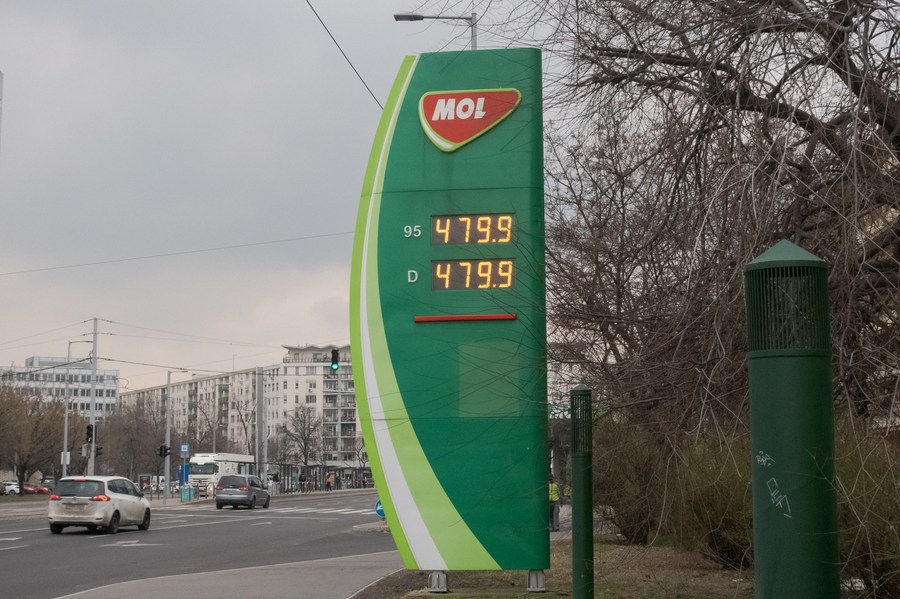Russian oil ban holdouts not budging inside bloc
By CHEN WEIHUA in Brussels | China Daily | Updated: 2022-05-11 07:44

Several European Union states are holding out against a proposed EU-wide ban on Russian oil imports despite a strong push by the bloc's leaders over the past week for an agreement to have been struck before celebrations for Europe Day on Monday.
Hungary, Slovakia, the Czech Republic and Bulgaria have argued that the EU's plan to phase out all Russian crude within six months and all refined oil products by the end of this year as part of the sixth round of sanctions on Russia will cause huge damage to their national economies as they cannot make the switch faster enough.
Hungarian Prime Minister Viktor Orban has described the EU proposal as an economic "atomic bomb" by overlooking the situation in Hungary, whose economy depends heavily on Russian oil. "There is still no proposal we could accept, and Hungary's stance has remained unchanged," Hungarian State Secretary Zoltan Kovacs said in a media statement.
This is despite a floated EU compromise to allow Hungary and Slovakia additional time to phase out Russian oil by the end of 2024.
European Commission President Ursula von der Leyen made a special trip to Budapest on Monday to meet Orban, but no breakthrough was achieved.
"This evening's discussion with PM Viktor Orban was helpful to clarify issues related to sanctions and energy security. We made progress, but further work is needed," she said in a tweet.
Hungarian Foreign Minister Peter Szijjarto also said the two sides "made progress" in the talks on Monday but that they still had plenty to discuss.
"We cannot make the Hungarian people pay the costs of this war," he said on Facebook.
He expressed the view that an oil embargo would destroy Hungary's energy security, and Hungary has told von der Leyen about those problems in detail.
"We asked that these issues be considered. Until the European Commission offers a solution to these problems, Hungary, of course, cannot support this sanctions package," Szijjarto said.
Slovakia said its only refinery, Slovnaft, can work only with a heavy type of Russian oil and that the technological adjustments required for the use of a lighter crude would take four to six years and an estimated 250 million euros ($264 million) in investment. Hungary is entirely dependent on Russian oil.
A Slovakian government spokesperson told the media that the country is willing to speed up the process to work with the three-year exemption proposal, but added that an embargo on Russian oil by the end of this year would trigger an economic recession.
The Czech Republic is negotiating for an extension until June 2024 when the country is expected to be connected to the Transalpine pipeline, which connects Italy, Austria and Germany.
The three Eastern European countries have been long connected with the Druzhba pipeline, or Friendship Pipeline, the world's longest oil pipeline that carries oil from the eastern part of European Russia to Ukraine, Belarus, Poland, Hungary, Slovakia, the Czech, Austria, Germany and beyond.
Agencies contributed to this story.
























